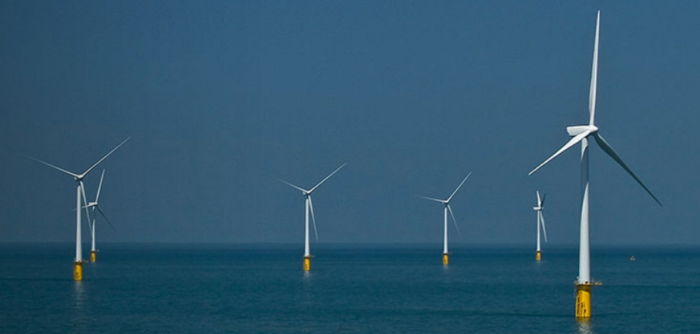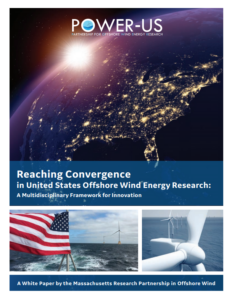The Partnership for Offshore Wind Energy Research (POWER-US) issued a white paper, proposing a framework for offshore wind research and innovation in the US which establishes the relationships, data, systems-level thinking, and strategic research approaches needed to advance the global offshore wind industry.
The report comes at a time when the offshore wind market has matured substantially in Europe and is growing quickly in Asia, and a well-coordinated, reliably funded approach to research can help secure US stewardship of its natural resources and strengthen US competitiveness in the global market.
Successful large-scale research initiatives in infrastructure, ocean science, and manufacturing provide examples for how the nation can mobilize its research community to help set the long-term vision for an affordable and sustainable market in offshore wind.
The report suggests five key steps toward creating a national framework for offshore wind research and innovation:
- An Integrated Community: Convening the overall US offshore wind research community – including universities, research institutions, the national labs, state programs, federal agencies and international partners – is ongoing and a fundamental objective and success of the POWER-US initiative.
- Industry Relevance: Federal agencies, offshore wind industry leaders and the research community are engaged in on-going and emerging collaborations which are poised to contribute significantly to industry priorities.
- Test Facilities and Staffing: DOE’s Office of Energy Efficiency and Renewable Energy (EERE)’s Wind Energy Technology Office (WETO) is to be commended for a recently issued RFI seeking information on US offshore wind R&D testing facilities, including existing capabilities, opportunities for enhancement, and recommendations for new facilities. The data gathered will provide a basis for considering a long-term vision for research infrastructure in this country, as suggested in this white paper.
- Data Archives: Consistent cyber infrastructure and data archiving for multi-disciplinary offshore wind research, with standards for meta-data, format and reporting should be developed with a longterm perspective that recognizes the primacy of domain knowledge over computer system design. Data standards and norms should develop iteratively over time, recognizing the complexity and difficulty of this task, and with emphasis on dialogue between the needs of specific projects and the drive towards a consistent architecture.
- Modeling Platform: The development of open-source modeling platforms will enable integrated structural, mechanical and electrical systems models that can be linked, via hybrid simulation, to the testing facilities.
Explore more herebelow:































































